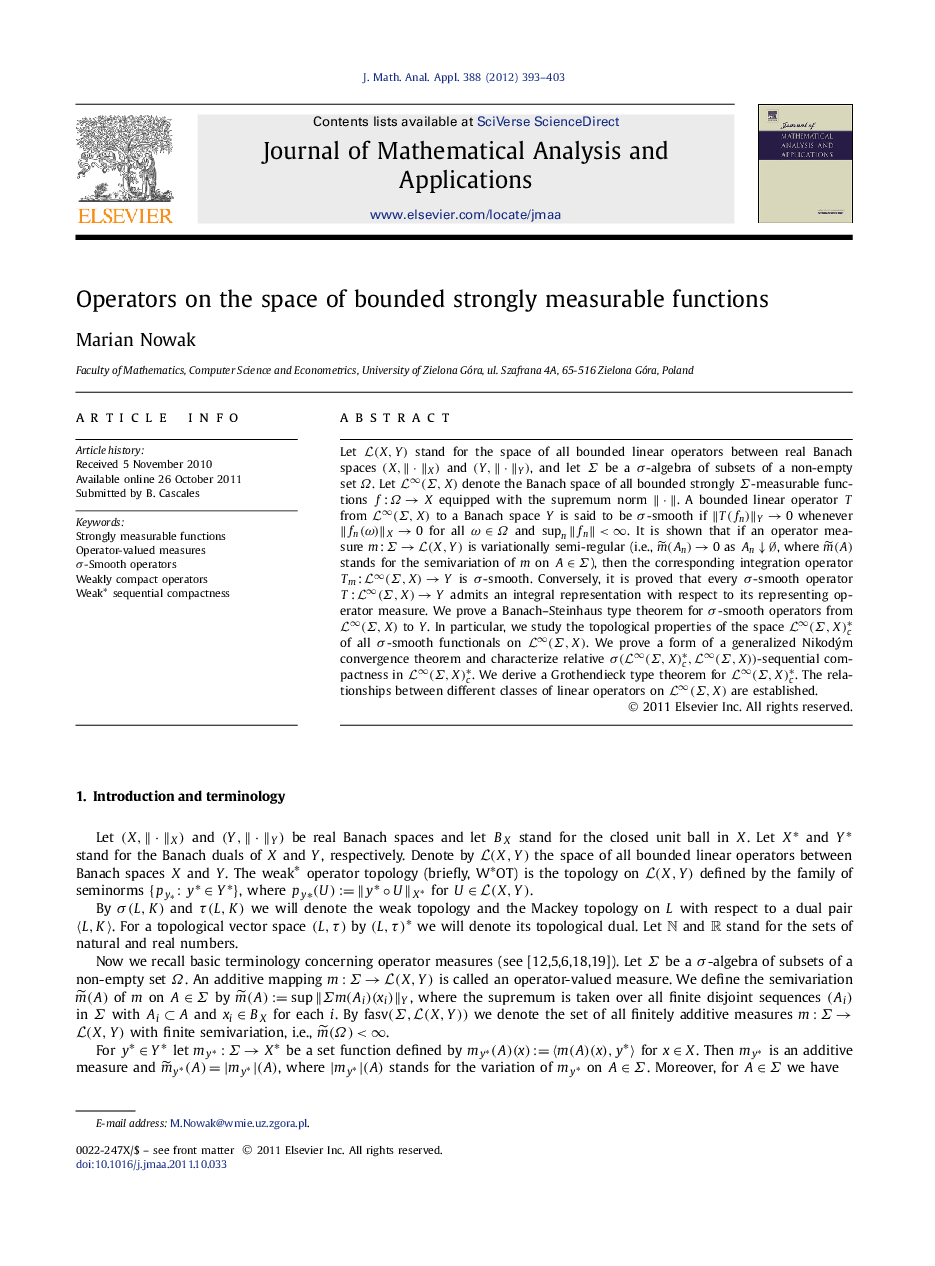| Article ID | Journal | Published Year | Pages | File Type |
|---|---|---|---|---|
| 4617595 | Journal of Mathematical Analysis and Applications | 2012 | 11 Pages |
Let L(X,Y) stand for the space of all bounded linear operators between real Banach spaces (X,‖⋅‖X) and (Y,‖⋅‖Y), and let Σ be a σ-algebra of subsets of a non-empty set Ω. Let L∞(Σ,X) denote the Banach space of all bounded strongly Σ-measurable functions f:Ω→X equipped with the supremum norm ‖⋅‖. A bounded linear operator T from L∞(Σ,X) to a Banach space Y is said to be σ-smooth if ‖T(fn)‖Y→0 whenever ‖fn(ω)‖X→0 for all ω∈Ω and supn‖fn‖<∞. It is shown that if an operator measure m:Σ→L(X,Y) is variationally semi-regular (i.e., as An↓∅, where stands for the semivariation of m on A∈Σ), then the corresponding integration operator Tm:L∞(Σ,X)→Y is σ-smooth. Conversely, it is proved that every σ-smooth operator T:L∞(Σ,X)→Y admits an integral representation with respect to its representing operator measure. We prove a Banach–Steinhaus type theorem for σ-smooth operators from L∞(Σ,X) to Y. In particular, we study the topological properties of the space of all σ-smooth functionals on L∞(Σ,X). We prove a form of a generalized Nikodým convergence theorem and characterize relative -sequential compactness in . We derive a Grothendieck type theorem for . The relationships between different classes of linear operators on L∞(Σ,X) are established.
